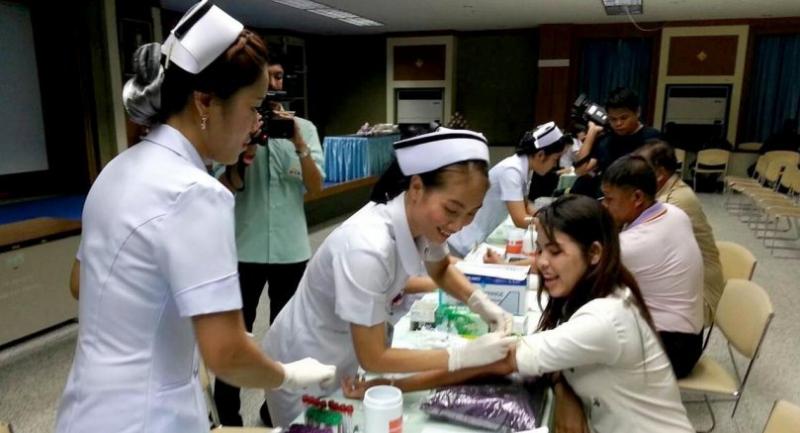New policy ‘will hurt healthcare sector’

Lack of civil servant status for new doctors will create shortage
The Rural Doctor Society (RDS) has warned that the government’s decision to not give civil-servant status to new doctors and dentists will only pose a threat to the country’s healthcare sector.
“This policy, if implemented, will have a domino effect and not just adversely affect the universal healthcare scheme provided via state hospitals,” RDS president Dr Kriengsak Vacharanukulkieti said yesterday.
He was speaking in response to reports that the committee on public workforce and policy has decided to recruit doctors and dentists as civil servants until 2021 only.
Normally, graduates from state-run medical schools are automatically recruited to state hospitals and become civil servants. Kriengsak believes the civil-servant status is the only thing that attracts doctors and other healthcare workers to work in the public sector.
“If you take this away, small hospitals will face a shortage of doctors as most doctors will decide to stay in developed towns only,” he said.
After being recruited as civil servants, doctors and healthcare workers are normally assigned to hospitals across the country.
According to Kriengsak, if they are not recruited as civil servants, new medical graduates will prefer to live comfortably in town and work for private hospitals that pay better.
Dr Prasit Watanapa, dean of the Mahidol University Faculty of Medicine Siriraj Hospital, said most doctors dispatched to provinces during their mandatory three-year service in the public sector chose to continue working there to help the locals.
“While working in rural areas, they are also at peace that their parents will enjoy good healthcare if the need arises,” Prasit said.
The government healthcare benefit offered to civil servants and their families is reportedly one of the best in the country.
“So, if this benefit is gone, it will have some impact,” Prasit said.
‘Keep doctors happy’
Admitting that not all new graduates will be able to get jobs in private hospitals, he said, “but instead of focusing on that, why don’t we ensure that doctors work happily even when they are posted to remote areas?”
Dr Pradit Chaiyabud, president of the Federation of Physicians and Nurses of regional and general hospitals, said the government should clarify how it will hire doctors for the public sector if they
are not recruited as civil servants.
“If the new recruits are offered good welfare and remuneration, they might be attracted to the public sector,” he said.
As for the medical benefits allocated to civil servants and their families, he said, “truthfully, these benefits are almost similar to those offered by the universal healthcare scheme these days”.
As for the lack of pension, he said attractive salaries will more than compensate for it.
However, he warned that if the new form of recruitment was not attractive, the government will lose its investment in the production of doctors.
The Cabinet recently earmarked Bt93.33 billion for the production of 24,562 doctors by 2027. However, some critics admit that the new recruitment policy may mean that the Public Health Ministry is finally deciding to manage its own human resources.
The recruitment of medical personnel has been mired in problems because the committee at the Office of Civil Service Commission does not fully understand the situation at the ministry and state hospitals, according to critics.
A few years ago, thousands of nurses working for state hospitals, for instance, held a large protest after they were not granted the civil-servant status despite working for state hospitals for many years.
